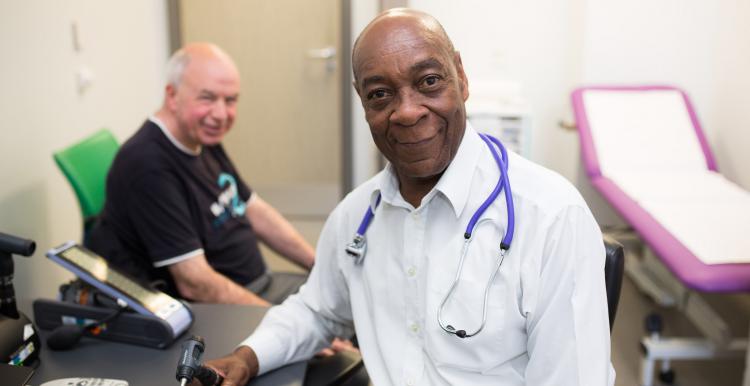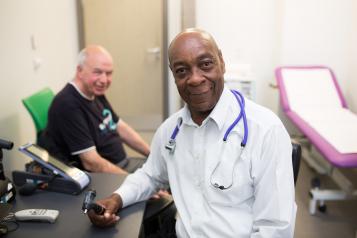Complaints about GPs

What might you want to complain about?
You can make a complaint about any aspect of a GP’s care. Here are just some examples of when you might want to complain, but remember that you could complain about something a GP did or didn’t do, even if it isn’t on this list:
- not being able to get an appointment to see your GP. The government target is that you should be able to get an appointment for an urgent medical problem within 48 hours
- an incorrect diagnosis
- incorrect treatment
- problems with your GP out-of-hours service
- there’s been an unreasonable delay in diagnosis or treatment
- there’s been an unreasonable delay in telling you the results of tests
- your GP ignores important symptoms
- bad communication
- your GP doesn’t provide appropriate pain relief
- clinical negligence resulting in personal injury
- the behaviour of staff at your GP surgery
- consent issues. For example, you weren’t given information about the severe side effects of a certain medication so you weren’t able to make an informed choice about consenting to the treatment
- discrimination, for example, you’re not given proper treatment because of your disability. This is against the law
- lack of patient confidentiality. For example, the GP receptionist refuses to make you an appointment unless you tell her what is wrong with you. You’re concerned by this, because everyone else in the waiting room can hear
- errors in medical records, or loss of medical records
- a refusal (or an unreasonable delay) to provide information about your medical condition for things like a benefits or insurance claim, or when information is requested by the DVLA so you can drive again
- refusal to make an appropriate referral to a hospital
- delays in passing on information to other professionals
- refusing to prescribe you a drug that you need. But you can't complain if it’s a drug that the GP isn’t allowed to prescribe on the NHS, or if it's a drug which a GP may only prescribe in certain circumstances or for specific patient groups
How to complain
If you have an issue with a GP practice, it is often best to contact the Practice Manager first to see if they can resolve the issue. They may be able to resolve the issue or to explain why they can’t. You can also ask them for the practice’s complaints policy to make a formal complaint.
Alternatively, you can choose to complain to NHS England (who commission GP services). You might choose to do this if, for example, you do not feel comfortable about complaining directly to your GP, so you could complain to NHS England instead. NHS England will use the same NHS complaints procedure that your GP would use.
NHS England, PO Box 16738, Redditch, B97 9PT
england.contactus@nhs.net. Put ‘For the attention of the complaints manager’ in the subject line.
Phone: 0300 311 22 33
Further details about complaining to NHS England
You might want to consider registering with a new GP practice. You can find out about other practices from the NHS Choices website or contact NHS England at the contact details above if you need more help with that.
Other advice from NHS Choices:
What should I do if my GP removes me from their list?
About GP practices - Choosing a GP/Registering with a GP
Patient choice of GP practices
Who is responsible for GP services?
It can be confusing to work out who is responsible and who you can raise your concerns with. Most GPs are not employed directly by the NHS. They have a contract to provide NHS services. They employ their own staff and therefore if you have concerns about a member of staff at the GP surgery, you can complain to the GP who employs them. GPs aren't usually responsible for out-of-hours services - see below. At every GP surgery, there has to be a procedure to deal with complaints, and someone who is responsible for dealing with complaints.
NHS England
NHS England is responsible for a GP’s contract and making sure that GPs carry out the terms of their contracts.
Out-of-hours services
Clinical commissioning groups (CCGs) buy or commission out-of-hour services on behalf of individual GP surgeries. These services are usually provided by another organisation, but sometimes they could be provided by your GP. If you have a concern about out-of-hours services, you could make your complaint either directly to the out-of-hours provider or to the CCG.
Individual healthcare professionals
Each individual healthcare professional that looks after you must provide a good standard of care. This is a legal duty and it's also required by the regulatory body of the professional. In the case of a doctor, this is the General Medical Council and in the case of a nurse at your GP’s surgery this is the Nursing and Midwifery Council. This means you can take action against an individual GP or other healthcare professionals if they don’t provide this standard of care.
The General Medical Council (GMC) website provides advice on the process if you have concerns about a doctor.
GMC website or call 0161 923 6602
What are your options?
Depending on what you want to achieve, you may have different options to make a complaint:
- Use the NHS complaints procedure
- Take legal action, for example, for clinical negligence, discrimination or for breach of your human rights. This can be expensive - take legal advice before considering this option
- Reporting concerns to your GP’s regulatory body
- Reporting concerns to someone else such as Healthwatch, NHS England, or the press
Medical records
If you’re thinking of making a complaint about the medical treatment which you did or didn’t receive, you may find it helpful to obtain a copy of your medical records first.
Whistleblowing
You may be someone who works in a GP surgery and is concerned about unsafe work practices or lack of care by other professionals. There are special procedures to follow to raise your concerns.
Get help
Depending on the circumstances, it can be difficult or distressing to make a complaint about a GP. It's usually best to get help to do this. For example, you can contact us for advice or VoiceAbility for complaints advocacy support.
Next steps
-
NHS and adult social care services complaints - deciding what outcomes you want to achieve
-
Checklist to help you decide whether to make a complaint about health or adult social care services
-
Complaining to a clinical commissioning group about services they commissioned
-
Complaining to NHS England about procedures, or services they commissioned
-
Problems with NHS and adult social care - complaining to the Care Quality Commission
-
Organisations that can help you make a complaint about health services
-
Whistleblowing - how a staff member can report a problem in the NHS or an adult social care service
Other useful information
-
NHS patients' rights (includes information about access to medical records)


